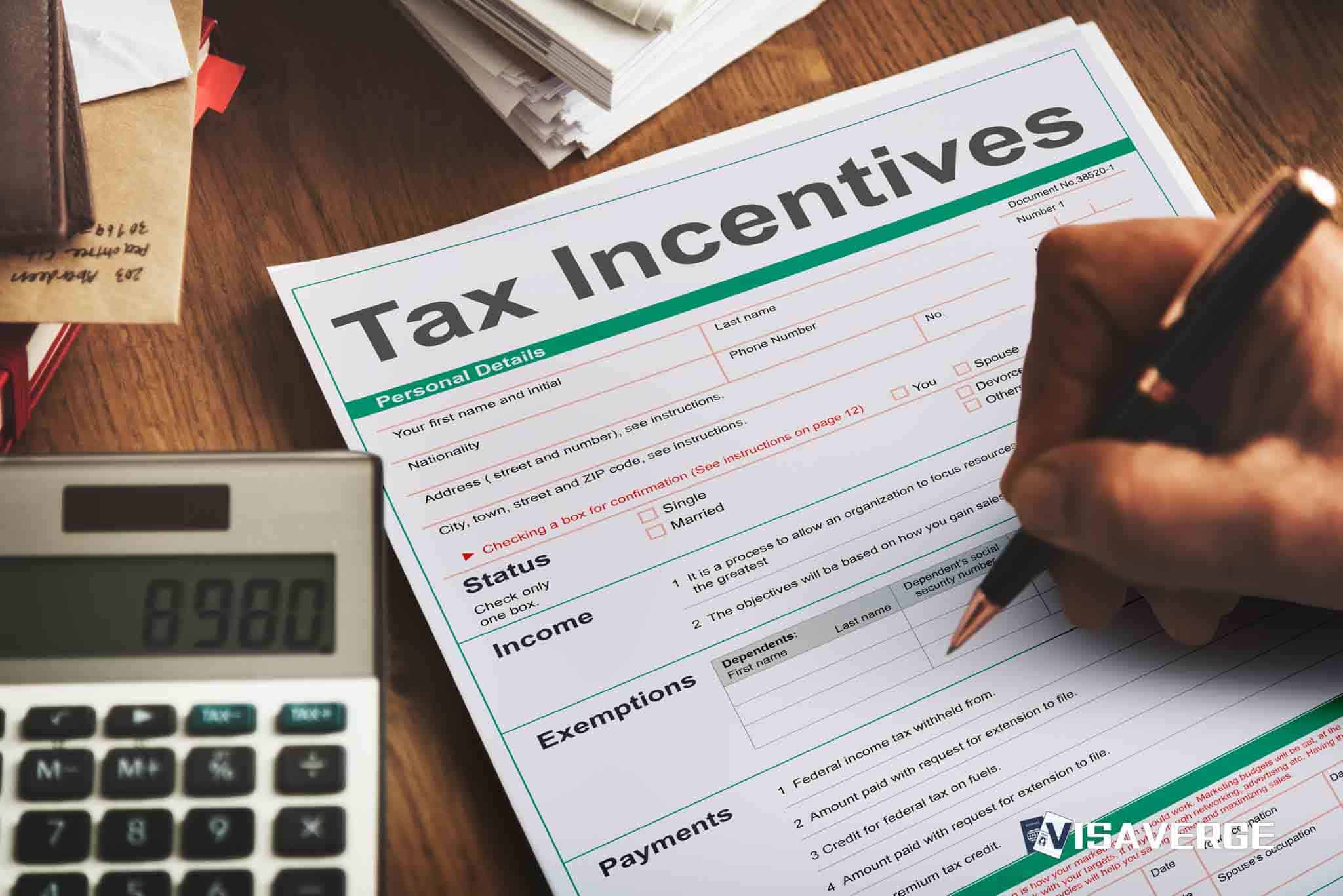The Internal Revenue Service is tightening its focus on paid preparers who handle refundable tax benefits, warning that failures to meet due diligence requirements will bring steep penalties on 2023 returns filed in 2024 and beyond. Under Internal Revenue Code §6695(g) , a tax return preparer who is not diligent when checking a client’s eligibility for certain credits—or the correct amount of those credits—faces a penalty of $600 per failure, with no maximum limit on total penalties.
The rule covers the following items:
– Earned Income Credit (EIC)
– American Opportunity Tax Credit (AOTC)
– Child Tax Credit (CTC), including the Additional Child Tax Credit (ACTC)
– Credit for Other Dependents (ODC)
– Head of Household (HOH) filing status

The IRS also requires the preparer to file Form 8867 with every affected return.
Core requirement: show how you reached eligibility decisions
The core message is simple but strict: if a paid preparer files a return with one or more of these credits, the preparer must ensure the client qualifies and must be able to show how they reached that decision. The reasonable cause exception does not apply to this penalty, so a preparer cannot avoid the $600 hit by claiming good faith.
Each missed step and each covered item on a single return can trigger a separate penalty, so a return claiming multiple credits can multiply exposure quickly.
Important: Failure to document eligibility, identity verification, or computational steps can result in multiple §6695(g) penalties on the same return.
What the IRS expects: due diligence steps
Preparers must follow clear steps and document them:
- Ask all required questions on Form 8867, Paid Preparer’s Due Diligence Checklist.
- When answers look wrong, don’t match, or leave gaps, ask additional follow‑up questions.
- Verify the taxpayer’s identity.
- Compute the credits correctly based on the facts.
- Complete and submit Form 8867 with the return.
- Keep supporting records that justify eligibility and computations.
According to analysis by VisaVerge.com, ignoring any one of these tasks can snowball into multiple penalties once the IRS reviews the file or visits the office.
Who is covered
The rule applies broadly to any paid preparer—anyone who prepares returns for a fee or compensation. It is not limited to large firms. Key points:
– A solo practitioner has the same duty as a national chain location.
– If the preparer signs the return, responsibility is direct.
– A nonsigning preparer who handles part of the return still has recordkeeping duties tied to the portion they prepared.
Recordkeeping requirements
To meet the due diligence recordkeeping requirements, a preparer must keep records for three years from the latest of the following dates:
– The due date of the tax return (not including extensions).
– The date the return was filed (for a signing tax return preparer who e-filed).
– The date the return was presented to the taxpayer for signature (for a signing preparer who did not e-file).
– The date a nonsigning preparer submitted the part of the return they were responsible for to the signing preparer.
These records should show:
– The questions asked during intake.
– Documents reviewed to verify the client’s identity.
– The computations used for each credit.
– The completed Form 8867 or equivalent computational checklist.
The checklist is not a formality; it is evidence that the preparer performed due diligence to prevent wrong or fraudulent claims. The IRS requires that Form 8867 be filed with the return to document the due diligence.
IRS penalties and enforcement actions
Penalty framework for current and future filing cycles:
– For returns filed in 2024 covering the 2023 tax year: $600 per failure, no cap on total penalties.
– For 2025, the penalty increases to $635 per failure, with a maximum of $2,540 per return if all four benefits covered by the provision are claimed and each one triggers a separate failure.
Practical implications:
– Multiple credits or an unsupported HOH claim can result in multiple penalties on the same return.
– The reasonable cause exception does not apply — preparers cannot rely solely on a client’s statements when facts are inconsistent or proof is missing.
– The IRS conducts in‑person compliance checks, including “Knock and Talk” visits. Files showing gaps can lead to deeper reviews, injunctions, or criminal investigations in severe cases.
Why these credits matter
The credits covered are central to working families’ finances:
– EIC, CTC/ACTC: support low- and moderate-income workers.
– ODC: helps families supporting older children or certain relatives who don’t qualify for the CTC.
– AOTC: assists with undergraduate education costs.
– HOH status: can lower tax for certain unmarried taxpayers supporting a qualifying person.
Because these benefits can change a refund by thousands of dollars, the IRS expects accurate computations and supporting records for each claim.
Compliance steps and practical checklist
For preparers, the safest course is to build due diligence into daily practice. Required and recommended actions:
- Always use Form 8867 when a return claims EIC, AOTC, CTC/ACTC, ODC, or HOH status.
- Keep proof of identity checks and documents used to verify family relationships, residency, and support.
- When intake answers don’t match documents, ask follow‑up questions and document the responses.
- Save worksheets and calculations that show how each credit was computed.
- Maintain all records for three years according to the timing rules above.
The IRS frames these steps as mandatory, not optional. Examples of potential failures:
– Claiming EIC but failing to file Form 8867 with the return.
– Missing identity verification or supporting computations during a review.
These omissions can each be treated as a separate failure under §6695(g).
Practical consequences for small offices and communities
The rules can feel strict for small offices that serve working families and new filers, but they also protect clients. When returns are prepared carefully:
– Families receive the credits they legitimately qualify for.
– Refunds are less likely to be delayed or audited.
– Preparers reduce the risk of penalties, injunctions, or criminal exposure.
In communities with many newcomers and complex family situations, a consistent checklist and proper records protect both clients and preparers.
Where to get official guidance
Paid preparers can review detailed guidance on the IRS website:
– See the official page on IRS: Paid Preparer Due Diligence Requirements for policy details and compliance resources.
– For the checklist itself, use Form 8867, Paid Preparer’s Due Diligence Checklist, which must be completed and filed with the return.
Key takeaways
The bottom line for any tax return preparer is consistency. Treat every return with a covered credit as a due diligence case:
– Complete Form 8867 every time a covered credit or HOH status is claimed.
– Verify identity and supporting documents.
– Compute credits carefully and save calculations.
– Keep records for three years.
– Ask follow‑up questions and document answers when information is inconsistent.
Penalties attach to each failure, there is no reasonable cause exception, and enforcement includes office visits and deeper reviews. Preparing with care now avoids trouble later—for both the preparer and the client counting on a clean, timely refund.
This Article in a Nutshell
The IRS is increasing scrutiny of paid tax preparers who handle refundable credits and HOH filing status, enforcing strict due diligence rules under IRC §6695(g). For 2023 returns filed in 2024, preparers face a $600 penalty per failure with no aggregate limit; in 2025 the penalty increases to $635 per failure with a $2,540 per-return cap. Covered items include the EIC, AOTC, CTC/ACTC, ODC, and HOH status. Preparers must complete and file Form 8867 with each affected return, verify identity, compute credits accurately, ask follow-up questions when answers conflict, and retain supporting records for three years. Each omitted step or unsupported credit can trigger separate penalties. The reasonable-cause exception does not apply, and enforcement includes office visits and potential deeper investigations. Preparers are advised to implement consistent intake procedures, document all checks and calculations, and maintain thorough records to protect clients and avoid significant penalties.













